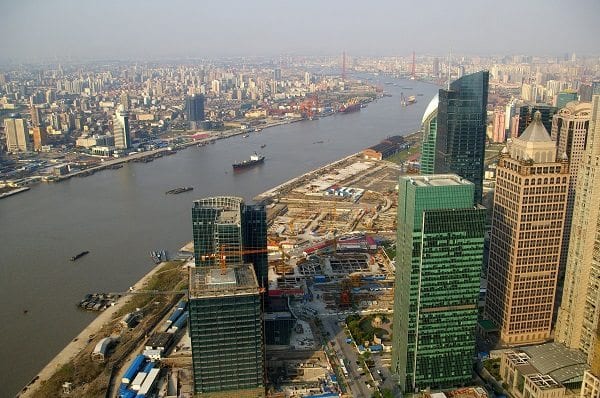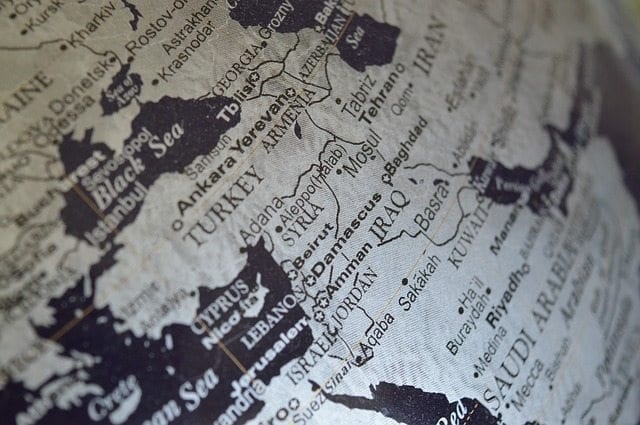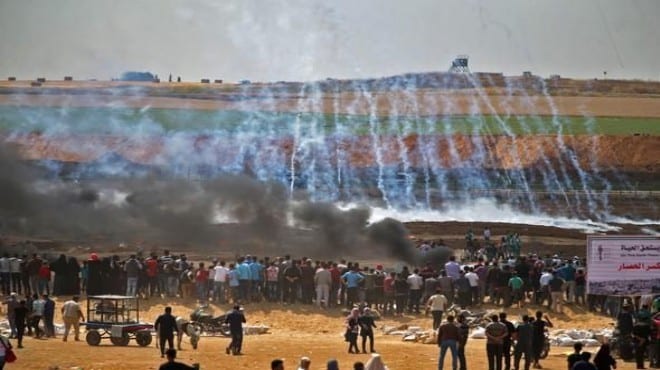Pentagon Chief Weighs Broader Approach to Border Security
The military considers how best to use the 6,000 troops sent to the U.S.-Mexico border, who cannot legally stand in for CBP.
The U.S. military is sending an additional 1,000 troops to the border with Mexico, bringing the number of U.S. military personnel there—both active-duty and National Guard—to about 6,000, a senior defense official told reporters at the Pentagon on Feb. 22.
That’s a significant chunk of military resources going toward a mission that can only legally be performed by domestic law enforcement such as Customs and Border Protection (CBP) officers: border security. Under the Posse Comitatus Act, the U.S. military is prohibited from taking any direct role in law enforcement—including search, seizure, apprehension, or arrest.
So what, then, are those 6,000 troops actually doing there? So far, the U.S. military has functioned primarily in a supporting role—installing concertina wire, transporting law enforcement officers by air, providing medical services to migrants, hardening points of entry, and helping with surveillance. In addition to stringing another 140 miles of concertina wire, the troops will be supporting the CBP officers between the points of entry, as well as installing ground-based detection systems, the senior defense official said.
The goal is “freeing up agents and putting them in a law enforcement role instead of administrative duties,” according to the official.
Despite their restricted role, it now seems like the troops on the border are there for the long term. As the Trump administration trumpets the so-called national security crisis of border security—and seeks to divert billions of dollars in military funding to building his long-promised border wall—the Pentagon is reassessing the role of the U.S. military in securing the border.
Acting Secretary of Defense Patrick Shanahan indicated on Feb. 23 during a surprise trip to the border—which, as is more common for trips to combat zones, was kept secret until his arrival—that the U.S. government needs a broader, more holistic approach to border security instead of a short-term solution.
“Let’s not do triage. Let’s really solve the fundamental problem,” Shanahan told reporters during the trip. “I think of it as: This is an opportunity, as we’re addressing this issue, to recommend solutions that are systemic and major and not a triage solution.”
“I don’t want to just add resources and not fix the problem long term,” Shanahan stressed.
As part of that holistic strategy, a U.S. military presence at the border could become the new normal. Shanahan said he and Gen. Joseph Dunford, the chairman of the Joint Chiefs of Staff, discussed a two- or three-year support role. For example, the troops could potentially take on more of the monitoring and detection mission in order to free up the CBP officers for other aspects of their mission.
Arguably, as long as the troops stick to the support mission, the deployment does not run afoul of the law, said Andrew Boyle, who works as counsel for the Liberty and National Security Program at the Brennan Center for Justice. However, an increased military presence in the border communities does raise concern about the possibility of violent cross-border incidents, he said.
“It does raise alarm bells in regards to the militarization of the domestic sphere,” he said.
But William Banks, an emeritus professor at Syracuse University’s College of Law and Maxwell School, believes there is no “clear, positive legal authority” for active-duty U.S. troops to be at the U.S.-Mexico border. The surveillance and detection role could pose a particular problem, he added.
The laws allowing U.S. military forces to conduct surveillance in support of CBP officers dates back to the “war on drugs” in the 1980s and were specifically designed for counter-drug activities, Banks explained.
That means that any surveillance the U.S. military is conducting that is not directly related to drug trafficking—for example, monitoring the border for illegal crossings—could be challenged in a court of law.
“If a federal lawsuit is brought challenging the scope of the military’s activities at the border, it remains unclear how a court would rule on such a challenge when drug trafficking is not remotely the issue,” Mark Nevitt, a Sharshwood fellow at the University of Pennsylvania Law School, wrote in November 2018.
Either way, it doesn’t look like these troops will be heading home anytime soon.
“What’s the core issue that has to get addressed?” Shanahan said. “How do we get out of treating the symptoms and get at the root of the issues?”















